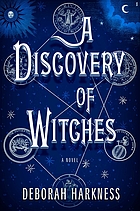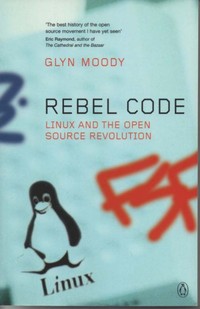Tagged with history
A Lil' Bit of History on the Women's Colleges: a Mini-Zine

book type:
recommendation:
medium:
Brave Girl: Clara and the Shirtwaist Makers' Strike of 1909
This is a kids' book that I think parents will enjoy more than their kids, and probably not more than once or twice through. I wanted to like it because it's about a young female labor leader, but it's all tell and not a lot of claim on your emotions. The illustrations are pretty great, though, enhanced with collaged fabrics, patterns and text.
author gender:
medium:
book type:
free:
Swimming in the Steno Pool: a Retro Guide to Making It in the Office
I can’t remember how I found this book--review in Bust? It seems like a Bust type of book--but I know I was interested because the author was a zinester in the 90s. (Mystery date : one gal's guide to good stuff Zines P4755m) It reads like a long magazine article on the history of women’s office support work: typing, stenography, secretaryship, written in a personal tone, through a feminist lens, and with enough endnotes to convince you of its authority. It is accompanied by lots of sidebars and historical photos and ads and a lengthy index (♥).
re: 19th century typewriter, “There was also a question of etiquette, which deemed handwriting more polite than mechanical type. ‘I do not think it necessary . . . to have your letters to me taken to the printers’ and set up like a handbill. I will be able to read your handwriting, and I am deeply chagrined to think you thought such a course necessary,’ read the handwritten reply to a typed missive sent by an early adopter in the insurance industry.” p.17-18
re: feminism and working class, “In fact, what the Miss America protestors should have thrown into the Freedom Trash Can was a coffee pot, because when it came to gender politics in the office, the battle was fought over coffee--and who should make it.” p.200 (citing a Fortune article “Beyond the Liberated Secretary.”
author gender:
book type:
medium:
recommendation:
Discovery of Witches, A
Twilight meets The Historian. The protagonist is a witch, but vampires figure prominently. Diana Bishop is a renowned scholar on alchemy doing research at the Bodleian Library at Oxford. She pages an enchanted book and all hell breaks loose in the creature community (which includes daemons as well as witches and vampires). The research part is interesting, but the story devolves into the overprotective male vamp, gendered power struggle, and abstinence porn that drove some feminists crazy about the Twilight series.
author gender:
book type:
medium:
Rebel Code: Linux and the Open Source Revolution
I only got halfway through this book, but I spent so much time reading it, I wanted credit. I bet the beginning, Richard Stallman creating GNU and Linus Torvalds and the internet developing Linux are the best parts anyway. This is an informative read, and sometimes compelling, evidence that I eventually put it down to the contrary.
“I certainly never looked at the source code of Unix,” Stallman says. “Never. I once accidentally saw a file, and when I realized it was part of Unix source code, I stopped looking at it.” The reason was simple: The source code “was a trade secret, and I didn’t want to be accused of stealing that trade secret,” he says. “I condemn trade secrecy, I think it’s an immoral practice, but for the project to succeed, I had to work within the immoral laws that existed.”
[Stallman] has no car. “I live in a city where you don’t need to have a car.” He rents a room: “I don’t want to own a house, I don’t want to spend a lot of money. If you spend a lot of money then you’re the slave of having to make more money. The money then jerks you around, controls you life.” Stallman has never married or had children. “That takes a lot of money. There’s only one way I could have made that money, and that is by doing what I’d be ashamed of”--writing nonfree software. “If I had been developing proprietary software, I would have been spending my life building walls to imprison people,” he believes.
“So in my case, Linus improved the kernel in a way that made more work for himself and for me in the short term, but made the kernel clearer, cleaner, and more maintainable in the long run. This lesson by example of taking the high road and doing things right, instead of taking the path of least resistance, made a very big impression on me at the time and became an essential part of my programming philosophy.” Rich Sladkey
author gender:
book type:
medium:
recommendation:
Rachel Calof's Story: Jewish Homesteader on the Northern Plains
My father gave me this book, a translated (from Yiddish) autobiography and supporting essays about a turn-of-the-century Jewish farm wife, saying that it was one of the best books he ever read. It didn't quite touch me in the same way it did my father, who has more sentiment for his immigrant parents than I do for the immigrant grandparents I never knew, though of course our family was urban, located in Newark, NJ.



